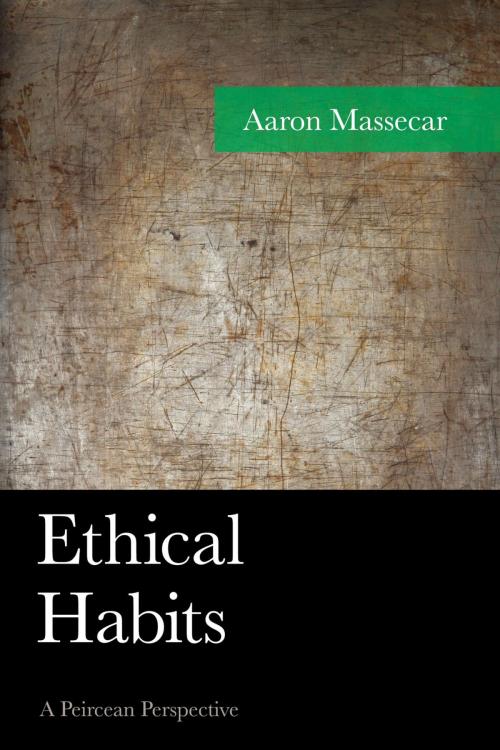Ethical Habits
A Peircean Perspective
Nonfiction, Religion & Spirituality, Philosophy, Ethics & Moral Philosophy| Author: | Aaron Massecar | ISBN: | 9781498508551 |
| Publisher: | Lexington Books | Publication: | April 21, 2016 |
| Imprint: | Lexington Books | Language: | English |
| Author: | Aaron Massecar |
| ISBN: | 9781498508551 |
| Publisher: | Lexington Books |
| Publication: | April 21, 2016 |
| Imprint: | Lexington Books |
| Language: | English |
Previous attempts to set up an Ethics based on the writings of Charles S. Peirce have generally begun and ended with the 1898 lecture, Philosophy and the Conduct of Life. It was in that lecture that Peirce famously argued that Theory and Practice should be kept distinct. In this book, Aaron Massecar argues that this lecture opens up a uniquely Peircean Ethics that brings theory into practice through an ethics of intelligently formed habits.
This argument is first based on a re-reading of the 1898 lecture, then turns to the evolution of Peirce’s Normative Sciences, specifically with reference to the role of Ethics as a Normative Science. Peirce initially leaves Ethics outside the sciences, saying that it is too practical, but he later changes his mind and begins to see the centrality of Ethics for determining right conduct based an appreciation of the ideals of conduct from Aesthetics. The result is a theory of Ethics as critical self-control that unifies the sciences under one general aim, as dictated by Peirce’s basic model and his theory of inquiry: the removal of sources of irritation and doubt.
The next step is to look at the objects of critical self-control. For that, Massecar looks to Peirce’s work on habits: habits function as the bridging point between theory and practice. The book describes how habits can be brought under critical self-control through an active process of deliberative, thoughtful reflection. The end result is a description of intelligently formed habits that not only responds to critics of the 1898 lecture but that opens up a place for a uniquely Peircean Ethics.
Previous attempts to set up an Ethics based on the writings of Charles S. Peirce have generally begun and ended with the 1898 lecture, Philosophy and the Conduct of Life. It was in that lecture that Peirce famously argued that Theory and Practice should be kept distinct. In this book, Aaron Massecar argues that this lecture opens up a uniquely Peircean Ethics that brings theory into practice through an ethics of intelligently formed habits.
This argument is first based on a re-reading of the 1898 lecture, then turns to the evolution of Peirce’s Normative Sciences, specifically with reference to the role of Ethics as a Normative Science. Peirce initially leaves Ethics outside the sciences, saying that it is too practical, but he later changes his mind and begins to see the centrality of Ethics for determining right conduct based an appreciation of the ideals of conduct from Aesthetics. The result is a theory of Ethics as critical self-control that unifies the sciences under one general aim, as dictated by Peirce’s basic model and his theory of inquiry: the removal of sources of irritation and doubt.
The next step is to look at the objects of critical self-control. For that, Massecar looks to Peirce’s work on habits: habits function as the bridging point between theory and practice. The book describes how habits can be brought under critical self-control through an active process of deliberative, thoughtful reflection. The end result is a description of intelligently formed habits that not only responds to critics of the 1898 lecture but that opens up a place for a uniquely Peircean Ethics.















